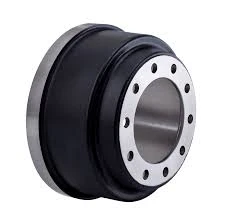
-
 Afrikaans
Afrikaans -
 Albanian
Albanian -
 Amharic
Amharic -
 Arabic
Arabic -
 Armenian
Armenian -
 Azerbaijani
Azerbaijani -
 Basque
Basque -
 Belarusian
Belarusian -
 Bengali
Bengali -
 Bosnian
Bosnian -
 Bulgarian
Bulgarian -
 Catalan
Catalan -
 Cebuano
Cebuano -
 Corsican
Corsican -
 Croatian
Croatian -
 Czech
Czech -
 Danish
Danish -
 Dutch
Dutch -
 angle
angle -
 Esperanto
Esperanto -
 Estonian
Estonian -
 Finnish
Finnish -
 French
French -
 Frisian
Frisian -
 Galician
Galician -
 Georgian
Georgian -
 German
German -
 Greek
Greek -
 Gujarati
Gujarati -
 Haitian Creole
Haitian Creole -
 hausa
hausa -
 hawaiian
hawaiian -
 Hebrew
Hebrew -
 Hindi
Hindi -
 Miao
Miao -
 Hungarian
Hungarian -
 Icelandic
Icelandic -
 igbo
igbo -
 Indonesian
Indonesian -
 irish
irish -
 Italian
Italian -
 Japanese
Japanese -
 Javanese
Javanese -
 Kannada
Kannada -
 kazakh
kazakh -
 Khmer
Khmer -
 Rwandese
Rwandese -
 Korean
Korean -
 Kurdish
Kurdish -
 Kyrgyz
Kyrgyz -
 Lao
Lao -
 Latin
Latin -
 Latvian
Latvian -
 Lithuanian
Lithuanian -
 Luxembourgish
Luxembourgish -
 Macedonian
Macedonian -
 Malgashi
Malgashi -
 Malay
Malay -
 Malayalam
Malayalam -
 Maltese
Maltese -
 Maori
Maori -
 Marathi
Marathi -
 Mongolian
Mongolian -
 Myanmar
Myanmar -
 Nepali
Nepali -
 Norwegian
Norwegian -
 Norwegian
Norwegian -
 Occitan
Occitan -
 Pashto
Pashto -
 Persian
Persian -
 Polish
Polish -
 Portuguese
Portuguese -
 Punjabi
Punjabi -
 Romanian
Romanian -
 Russian
Russian -
 Samoan
Samoan -
 Scottish Gaelic
Scottish Gaelic -
 Serbian
Serbian -
 Sesotho
Sesotho -
 Shona
Shona -
 Sindhi
Sindhi -
 Sinhala
Sinhala -
 Slovak
Slovak -
 Slovenian
Slovenian -
 Somali
Somali -
 Spanish
Spanish -
 Sundanese
Sundanese -
 Swahili
Swahili -
 Swedish
Swedish -
 Tagalog
Tagalog -
 Tajik
Tajik -
 Tamil
Tamil -
 Tatar
Tatar -
 Telugu
Telugu -
 Thai
Thai -
 Turkish
Turkish -
 Turkmen
Turkmen -
 Ukrainian
Ukrainian -
 Urdu
Urdu -
 Uighur
Uighur -
 Uzbek
Uzbek -
 Vietnamese
Vietnamese -
 Welsh
Welsh -
 Bantu
Bantu -
 Yiddish
Yiddish -
 Yoruba
Yoruba -
 Zulu
Zulu
Can You Swap Drum Brakes for Disc Brakes? | Upgrade Your Vehicle's Performance
Can You Swap Drum Brakes for Disc Brakes?
When it comes to upgrading a vehicle's braking system, one popular consideration among car enthusiasts is the possibility of swapping drum brakes for disc brakes. While both systems serve the primary function of stopping the vehicle, they differ significantly in design and performance. This article explores the feasibility, benefits, and considerations of making this swap.
Understanding the Brake Systems
Drum brakes are older technology, consisting of a cylindrical drum that rotates with the wheel. When the driver presses the brake pedal, brake shoes push against the inside of the drum, creating friction to slow the vehicle. On the other hand, disc brakes utilize a flat disc, or rotor, that spins with the wheel. Calipers squeeze brake pads against the rotor to produce stopping power. The greater surface area of disc brakes typically allows for more effective heat dissipation and better performance in high-stress situations.
Advantages of Disc Brakes
1. Better Performance Disc brakes generally provide superior stopping power, especially under heavy loads or in high-speed situations. They are less prone to fading, a phenomenon where brakes lose effectiveness due to overheating.
2. Maintenance Disc brakes are easier to inspect and replace compared to drum brakes. The exposed nature of the components enables quicker access for maintenance tasks.
3. Resistance to Corrosion Disc brakes are less susceptible to moisture and debris accumulation, which can affect the performance of drum brakes. This is particularly beneficial in areas with harsh weather conditions.
4. Improved Modulation Disc brakes offer better feedback to the driver, allowing for more nuanced control during braking. This is especially important in performance and off-road vehicles.
can you swap drum brakes for disc brakes

Considerations for Swapping
However, swapping from drum to disc brakes is not as simple as merely removing one and installing the other. Here are several key factors to consider
1. Compatibility Ensure that your vehicle can accommodate disc brakes. This often involves checking the wheel size, suspension design, and mounting points. Some vehicles may require new control arms or hubs to fit disc brakes properly.
2. Brake System Components You will need additional components such as calipers, rotors, and possibly a new master cylinder designed to handle the fluid displacement required by disc brakes.
3. Cost While disc brake systems can provide enhanced performance, they also come with a higher price tag. Consider whether the benefits justify the investment, especially in older vehicles where the cost of upgrading might exceed the vehicle's overall value.
4. Legal Regulations Before making modifications, check local laws regarding vehicle modifications. Some areas have regulations governing the types of brakes that can be installed on certain vehicles.
5. Professional Installation If you are not experienced in automotive mechanics, hiring a professional for the installation is advisable. Improper installation can lead to dangerous braking failures.
Conclusion
Swapping drum brakes for disc brakes can be a worthy investment for those seeking enhanced braking performance and reliability. However, it is essential to carefully evaluate compatibility, costs, and local regulations before proceeding. With the right planning and execution, this upgrade can significantly improve your vehicle's performance and safety on the road. Always consult with a professional mechanic to ensure that the swap is done correctly for optimal performance.
-
What Are Drum BrakesNouvèlJul.07,2025
-
Understanding Brake Drum MaterialNouvèlJul.07,2025
-
Semi-Trailer Brake Drum: A Key Component for Extreme Loads and Long-Distance TransportNouvèlJul.07,2025
-
Drum Brake Pads for SaleNouvèlJul.07,2025
-
Brake Drums for SaleNouvèlJul.07,2025
-
Brake Drum ManufacturerNouvèlJul.07,2025
-
Aluminum Brake Drums: The Future of High-Performance CarsNouvèlJul.07,2025
